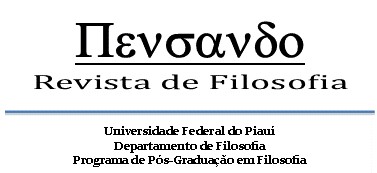CONSTITUTIONAL COURTS, JUSTICIABILITY AND DISTRIBUTIVE JUSTICE
Pensando - Revista de Filosofia, Vol.9, n.18, 2018 • Pensando - Revista de Filosofia
Autor: Julia Moura
Resumo:
Should constitutional social rights be decided upon the basis of what procedure is most likely to give us just policies (ideal social rights) or is there a non-epistemic/ non-instrumental dimension to this question. If libertarians took over and eliminated welfare programs and then constitutionalized the absence of these programs what are the objections that can be made? Here I mean to look at these questions by relying on Rawls’s view on justiciability, considering that it may help understand the questions raised by social rights litigation in Brazil, the limits and the capacity of constitutional courts. The motivation for considering the rawlsian framework does not at aim at arguing that these practices should be evaluated solely by his theory but it does consider that the it can help build stronger arguments to critically evaluate constitutional court decision-making and also can, on the other hand, help elucidate the conditions of considering the constitutionalization of social rights in a non-instrumental way.
ISSN: 2178-843X
DOI: https://doi.org/10.26694/pensando.v9i18.8195
Texto Completo: https://revistas.ufpi.br/index.php/pensando/article/view/8195/5074
Palavras-Chave: Justiciability, Social Rights, Distributive Justice

Pensando - Revista de Filosofia
A revista objetiva ser um espaço editorial de rigorosa discussão filosófica aberto à participação de pesquisadores das mais diferentes regiões do país e do mundo, sem qualquer restrição de ordem temática e teórica, em nível de pós-graduação stricto sensu (doutorado).
La revista pretende ser un espacio editorial de discusión filosófica rigurosa abierta a la participación de investigadores de las regiones más diferentes del país y del mundo, sin ninguna restricción de orden temático y teórico, a nivel de postgrado stricto sensu (doctorado).
This journal claims to be a publishing space of rigorous philosophical debate opened to the collaboration of researchers from worldwide with no restriction of themes and theoretical views, by accepting papers only at the level of graduate studies.
Buscamos ainda disponibilizar a tradução de artigos filosóficos ligados às necessidades da graduação e pós-graduação em filosofia no país, bem como a publicização de filósofos que não são contemplados editorialmente no Brasil.
También buscamos poner a disposición la traducción de artículos filosóficos relacionados con las necesidades de estudiantes de pregrado y posgrado en filosofía en el país, así como la publicación de filósofos que no están cubiertos en Brasil.
The journal also aims to publish Portuguese and Spanish translations of philosophical works related to the needs of philosophy undergraduate and graduate studies in our country, as well as papers of relevant philosophers who were not still published in Brazil.
Queremos também, por fim, ser um espaço para a discussão sobre o ensino de filosofia em seus diferentes graus de ensino, visando sua melhoria através da discussão crítica de alternativas acadêmicas relacionadas ao tema.
Finalmente, también queremos ser un espacio para la discusión sobre la enseñanza de la filosofía en sus diferentes grados de educación, con el objetivo de mejorar a través de la discusión crítica de las alternativas académicas relacionadas con el tema.
The journal claims also to be a place for serious debates concerning teaching philosophy in its several levels, by aiming to improve its practice through the critic discussion of relevant alternatives to the subject.
Publicamos artigos em português, inglês, francês, espanhol e italiano. A publicação e o processo editorial é totalmente gratuito.
Publicamos artículos en portugués, inglés, francés, español e italiano. El proceso de publicación y editorial es completamente gratuito.
We publish papers in Portuguese, English, French, Spanish, and Italian. There is no charges or cost for submission and publication.
QUALIS CAPES 2017-2020: A2
